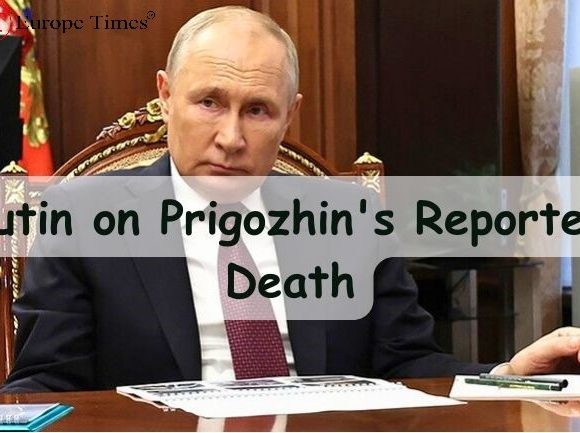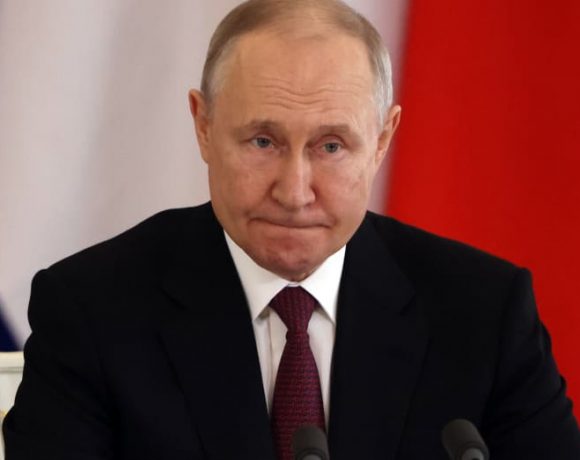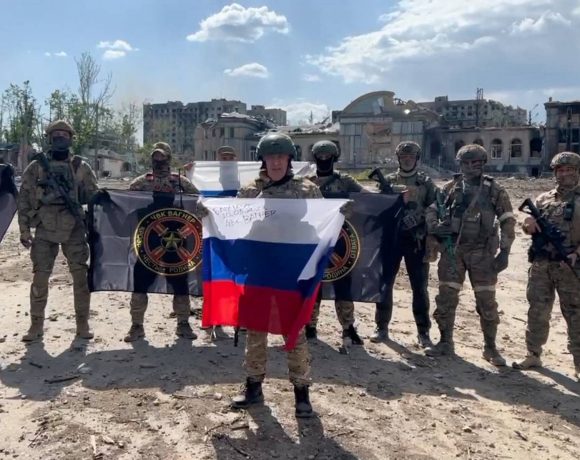
Vladimir Putin has ended his silence concerning the reported demise of Yevgeny Prigozhin, approximately 24 hours after the crash of Prigozhin’s private jet associated with the Wagner group.
The Russian president commented that the leader of the mercenary organization was a “gifted individual” who had “made significant errors in his life.” Putin also extended condolences to the families of the presumed 10 individuals on the plane that went down northwest of Moscow on Wednesday evening.
Nonetheless, he refrained from directly confirming Prigozhin’s death. Speculation about the cause of the fatal crash and Prigozhin’s presence on the plane has been rampant since the incident occurred.
During a briefing, a Pentagon spokesperson stated that the United States believed it likely that Prigozhin was killed in the crash. Nearby villagers reported hearing a loud noise before witnessing the aircraft plummet.
One theory under investigation suggests the possibility of a bomb being smuggled aboard, according to reports in Russian media. A US official informed CBS News that an explosion on the plane seemed the most plausible cause.
An alternative theory presented by a Telegram channel linked to Prigozhin suggested that the plane might have been shot down by Russian anti-aircraft forces. However, the Pentagon dismissed this, stating no evidence supported the claim.
Authorities are questioning ground staff at Moscow’s Sheremetyevo airport, where the plane took off, and reviewing CCTV footage. Prigozhin, the head of the Wagner mercenary group, was once considered a loyalist to Putin but fell out of favor after leading a short-lived rebellion in Russia in June.
The Kremlin initially remained silent after the crash. President Putin even participated in a Brics summit via video link the next morning without mentioning the crash that had attracted global attention.
However, Putin’s stance changed on Thursday evening when he conveyed condolences to the victims’ families and acknowledged initial data suggesting Wagner employees were on the ill-fated flight. He described Prigozhin as a person with a complex life, acknowledging both his achievements and mistakes.
Though Putin spoke in the past tense about Prigozhin and expressed sympathy for the victims’ families, he didn’t definitively confirm Prigozhin’s death. When Prigozhin and his armed group rebelled, Putin denounced their actions as betrayal and vowed retribution.
A subsequent arrangement allowed Wagner fighters a choice between joining the Russian army or relocating to Belarus with no penalties. This development puzzled experts and the public, given Prigozhin’s apparent freedom of movement.
Russian forensic specialists have initiated victim identification, while Putin noted that DNA tests would require time. Among those on the plane were Wagner co-founder Dmitry Utkin and the group’s financial manager, Valeriy Chekalov. All 10 individuals on the plane, including passengers and crew, are presumed deceased.
Picture Courtesy: Google/images are subject to copyright


